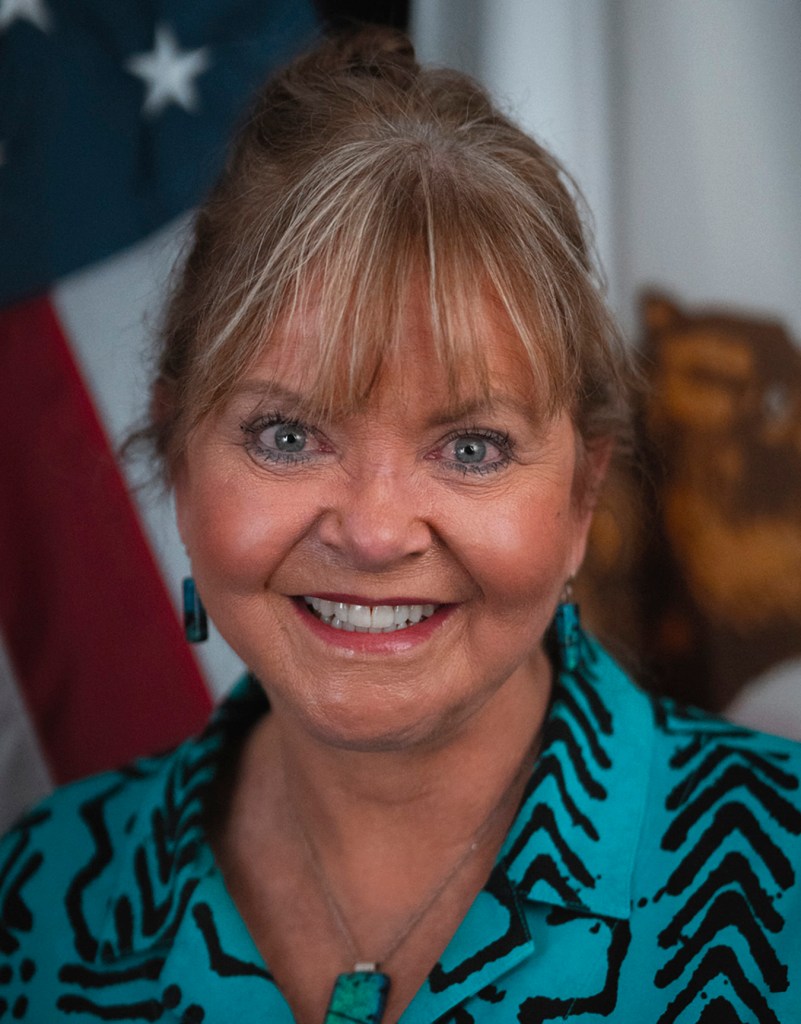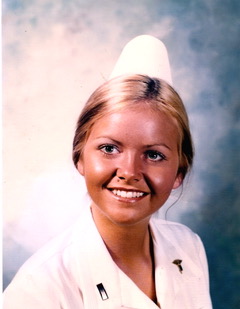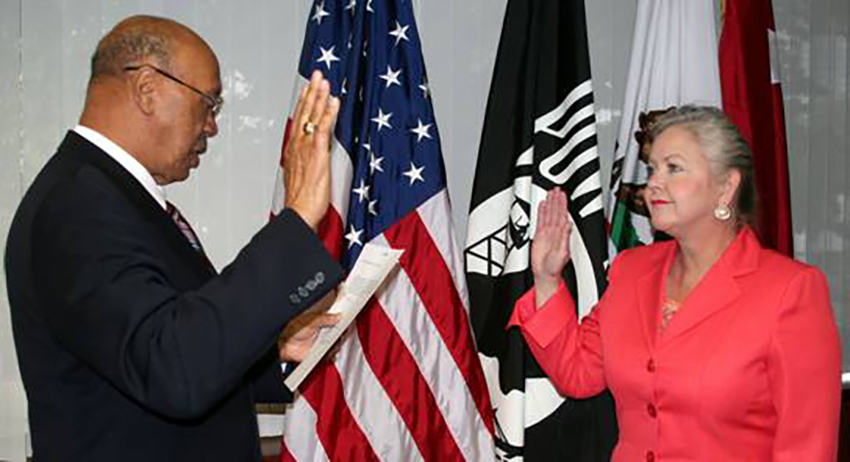As we continue to celebrate Women’s History Month, the California Department of Veterans Affairs (CalVet) can look in its own storied history to find women who have made great contributions in the military, and to the agency itself.

Retired Brigadier General Robin Umberg is one of them. She broke ground for other women in the military by rising through the ranks during a time of great change in the Army’s culture.
Umberg comes from a military family. Her dad was an Air Force pilot who served during World War II, Korean, and Vietnam wars. His service took the family overseas to Italy and Africa, among other places. As a young girl, with the family sometimes living in off-base housing, she’d meet other kids. When they asked who she was, “I’d say, ‘I’m an American, and then I’d say my name,” Umberg said.
That military background gave her plenty of insight into her future. Umberg joined the Army at 18 in the 1970s, beginning a career that spanned 33 years. “There were two reasons,” she said. “I wanted a free education, and I got a nursing scholarship through the Walter Reed Army Institute of Nursing.” And the other reason? Opportunity.

“I took a look at the data,” she said. “There were lots more men than women. Certainly, I wanted to serve God and country. And the military very quickly changed me. The camaraderie I experienced – I loved being a soldier and serving with soldiers. It not only took hold of the core of who I am, but also the core of my comrades.”
Umberg’s career began when the Army transformed itself into a single unit in which men and women served together rather than separately. It meant opportunities for promotions, better pay, and better duties; although women couldn’t serve in combat roles until 2015.
“The 1970s were really important for women,” she said. “Women actually served during the Revolutionary War. But it took a couple of centuries before it really took hold.”
Umberg recognized the opportunity, enlisted, and began her ascent through the ranks, adding a Master’s in Business Administration to her nursing credentials along the way. She eventually moved off of the nursing floors and into commands, including the 6253rd and 4122th Army Hospitals, and a pair of overseas assignments. President Clinton appointed her to serve on the West Point Board of Visitors in 2000.
Promoted to Brigadier General in 2005, she served as Chief, Professional Services, 3rd Medical Command at Fort Gillem, Georgia, which handled battlefield readiness for more than 27,000 Army medical personnel. She was inducted into the Order of Military Medical Merit in 2006.

The greater responsibilities of rank also challenged her emotions in one of her very last assignments.
“I represented the Chief of Staff of the Army at funerals of soldiers (killed in) Afghanistan,” she said. Umberg remembers a service in Mississippi that revealed how difficult it would be. “I always met with the family, to talk to them about their loved one, to make my remarks personal. When you get down on one knee and present the flag on behalf of a grateful nation … I said I wasn’t going to cry … I’m there in my white gloves and looking at that mother with tears in her eyes. …”
As the ceremony ended, Umberg said she stepped behind a tree as she composed herself. A man wearing a motorcycle club vest saw her and approached. “He thanked me,” she said. “He didn’t understand that leadership really felt that much, cared that much.”
She did, and made it a point of writing a personal letter to each child of the fallen whose funerals she attended, giving them something that they could cherish as they grew up.
But Umberg will say that leadership had its challenges, some of which she met better than others.
“At the end of my career, women would come up to me and say, ‘You led the way,’” Umberg said. “‘You commanded hospitals. You moved up in a man’s world.’ It made me squeamish. I may have opened doors, but I did not have the courage of the women who came after me. When I was harassed, I didn’t have the courage to speak up. I felt if I said something, I might not move up.”
She put up with harassment in hopes that she could build the power to affect changes and outcomes down the road. “Women like me might have been able to open doors, but others worked their tails off (to fight harassment),” Umberg said. “I’m so proud of the women who followed me and did that.”

After retiring in 2010, she went on to serve as a deputy secretary and then as the undersecretary for CalVet. Today, she is a member of the California Veterans Board, which advocates to ensure and enhance the rights and benefits of California veterans and their dependents.
She lives in Southern California with her husband, state Senator Tom Umberg. He is a retired Army colonel and former federal prosecutor who also served as President Clinton’s drug czar.

My utmost respect to Brigadier General Umberg and her husband, Tom, whom I had the pleasure of hanging out with at a past Los Angeles veterans event. I am honored to know General Umberg, and want to add my congratulations to the many I’m sure will be responding.,
LikeLike